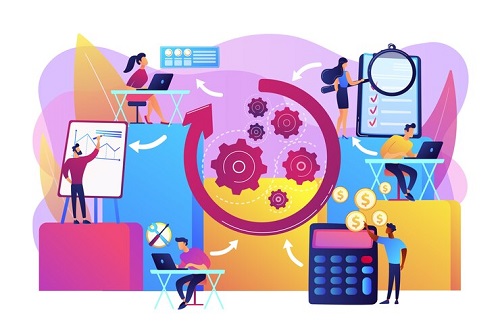Understanding the Modern Business Landscape
In today’s fast-paced world, technology is not just an enabler but a driving force behind business success. Current business trends are heavily influenced by advancements in technology, making it imperative for companies to stay competitive in a tech-driven market.
Key Trends:
- Digital Transformation: Companies are leveraging digital tools to streamline operations, enhance customer experiences, and drive innovation.
- Data Analytics: Businesses are harnessing the power of big data to make informed decisions and predict future trends.
- Automation and AI: Automation and artificial intelligence are transforming various industries by increasing efficiency and reducing human error.
Success Stories:
- Amazon: Leveraging AI and machine learning to enhance customer recommendations and optimize logistics.
- Netflix: Using data analytics to personalize content and improve user engagement.
- Tesla: Integrating cutting-edge technology in electric vehicles and autonomous driving systems.
Clear Vision and Objectives
A successful tech project begins with a clear vision and well-defined objectives. This involves setting achievable project goals that align with the overall business strategy.
Steps to Define Clear Objectives:
- Identify Business Needs: Understand the core needs and challenges of the business.
- Set SMART Goals: Ensure objectives are Specific, Measurable, Achievable, Relevant, and Time-bound.
- Align with Strategy: Ensure that the project supports the broader business strategy and goals.
- Stakeholder Buy-In: Secure support from key stakeholders to ensure alignment and resource availability.
Skilled and Adaptable Team
Building a team with the right mix of technical and soft skills is crucial for the success of any tech project.
Key Components:
- Technical Skills: Proficiency in relevant technologies and tools.
- Soft Skills: Strong communication, problem-solving, and teamwork abilities.
- Continuous Learning: Encouraging team members to stay updated with the latest technological advancements.
- Collaboration: Promoting a collaborative environment where ideas and feedback are freely exchanged.
Robust Project Management
Effective project management is the backbone of any successful tech initiative. Implementing agile or other effective project management methodologies can help in navigating complex projects.
Best Practices:
- Agile Methodology: Emphasizes iterative development, flexibility, and customer feedback.
- Realistic Timelines: Setting achievable deadlines and milestones.
- Risk Management: Identifying potential risks and developing contingency plans.
Technology Selection and Integration
Choosing the right technology stack is critical for the success of a tech project. The selected technologies should be compatible with existing systems and scalable for future needs.
Selection Criteria:
- Compatibility: Ensure new technologies integrate seamlessly with existing systems.
- Scalability: Choose technologies that can grow with the business.
- Future-Proofing: Consider emerging technologies and trends to avoid obsolescence.
User-Centric Design
Focusing on user needs and experiences is essential for creating successful tech solutions. Incorporating user feedback throughout the project lifecycle ensures that the final product meets user expectations.
Key Focus Areas:
- User Research: Understand the needs, preferences, and pain points of the target audience.
- Usability Testing: Conduct regular testing to identify and address usability issues.
- Iteration: Continuously refine the product based on user feedback.
Data-Driven Decision Making
Utilizing data analytics to guide project decisions can significantly enhance the chances of success. Real-time data and performance metrics provide valuable insights into project progress and areas for improvement.
Benefits:
- Informed Decisions: Data-driven insights help in making informed decisions.
- Performance Metrics: Real-time tracking of key performance indicators (KPIs) to monitor progress.
- Success Stories: Companies like Google and Facebook use data analytics to drive product development and marketing strategies.
Continuous Improvement and Innovation
Encouraging a culture of innovation within the team is vital for staying ahead in the tech industry. Regularly reviewing and refining processes and technologies ensures continuous improvement.
Strategies:
- Innovation Culture: Foster an environment where creativity and innovation are encouraged.
- Process Review: Regularly assess and improve project processes.
- Stay Updated: Keep abreast of industry trends and emerging technologies.
Measuring Success and Impact
Defining key performance indicators (KPIs) and regularly assessing project performance against these objectives is crucial for measuring success and impact.
Steps to Measure Success:
- Define KPIs: Identify metrics that align with project goals.
- Regular Assessment: Continuously monitor and evaluate project performance.
- Celebrate Successes: Recognize and celebrate achievements to motivate the team.
- Learn from Failures: Analyze failures to identify areas for improvement and avoid future mistakes.
Navigating tech projects requires a strategic approach, skilled team, effective project management, and a focus on continuous improvement. By adhering to these key success factors, businesses can enhance their chances of achieving their tech project goals and staying competitive in a technology-driven market.



